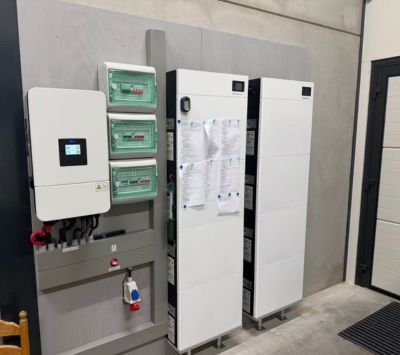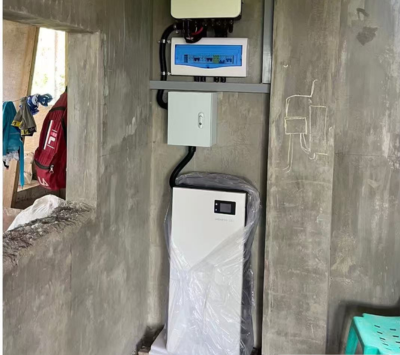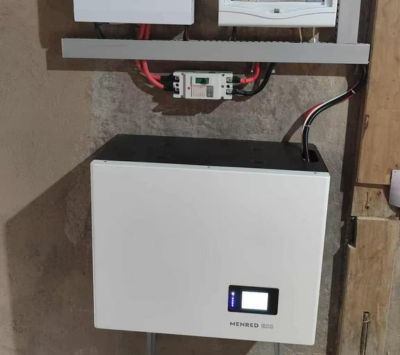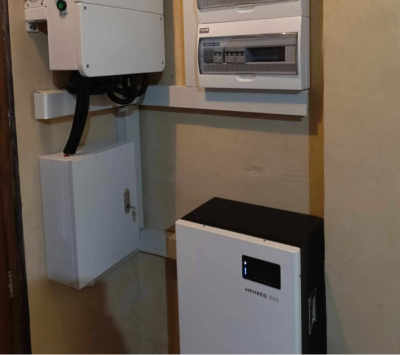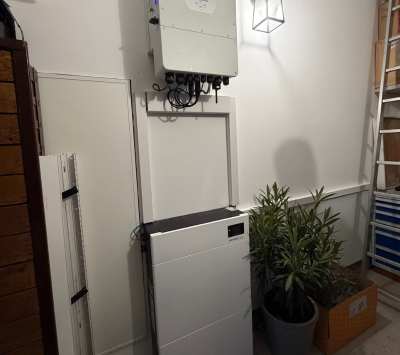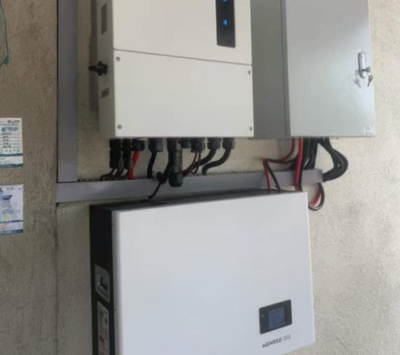Introduction
The rise of solar energy has transformed the global energy landscape, offering a sustainable alternative to fossil fuels. However, its true potential lies in pairing solar systems with efficient energy storage solutions. Enter lithium-ion batteries—the game-changer for modern solar applications. Their high energy density, long lifespan, and efficiency have made them a cornerstone of renewable energy systems.
In this article, we’ll explore 5 reasons why lithium-ion batteries are revolutionizing solar energy systems, while diving into their advantages, applications, and future potential.
1. Unmatched Energy Density for Compact Storage
What Is Energy Density, and Why Does It Matter?
Energy density refers to the amount of energy stored in a given volume or weight of a battery. Lithium-ion batteries boast the highest energy density among rechargeable batteries, typically 150-200 Wh/kg, compared to lead-acid batteries with only 30-50 Wh/kg.
Impact on Solar Systems
For solar energy, where storage capacity is critical, higher energy density translates to:
- Smaller battery sizes for residential and commercial systems.
- Higher energy storage per unit area, maximizing space efficiency.
- Lightweight systems, ideal for off-grid and mobile solar installations.
Example Applications
- Residential Solar Systems: Lithium-ion batteries store surplus solar energy efficiently, providing backup power at night or during outages.
- Portable Solar Generators: Compact lithium-ion batteries power devices during camping or outdoor activities.
By packing more power into smaller units, lithium-ion batteries enable seamless integration into diverse solar setups.
2. Longer Lifespan: Cost-Efficiency Over Time
Understanding Battery Lifespan
The lifespan of a battery is measured in charge-discharge cycles. Lithium-ion batteries typically last 2,000-5,000 cycles or 10-15 years, far exceeding lead-acid batteries’ average of 300-500 cycles.
Why This Matters for Solar Systems
Solar systems depend on daily charge and discharge cycles to store and release energy. A longer lifespan means:
- Fewer replacements, reducing overall system costs.
- Consistent performance over the years, ensuring energy reliability.
- Enhanced return on investment (ROI) for solar installations.
Comparison of Costs
While lithium-ion batteries have a higher upfront cost, their extended lifespan and efficiency make them more cost-effective over time.
| Battery Type | Lifespan (Cycles) | Efficiency (%) | Average Cost ($/kWh) |
|---|---|---|---|
| Lithium-Ion | 2,000-5,000 | 90-95 | $350-500 |
| Lead-Acid | 300-500 | 60-80 | $150-200 |
3. High Efficiency and Fast Charging
Efficiency in Solar Storage
Lithium-ion batteries achieve charge-discharge efficiencies of up to 95%, minimizing energy losses. In contrast, lead-acid batteries struggle to exceed 80% efficiency.
Why Efficiency Matters
Higher efficiency ensures that more solar energy is captured and utilized, reducing reliance on grid power or additional storage units.
Fast Charging for Maximum Utilization
Lithium-ion batteries can recharge quickly, making them ideal for regions with limited sunlight hours or fluctuating solar generation. They:
- Support faster recovery during sunny periods.
- Minimize downtime, ensuring continuous power availability.
Technological Innovations
Recent advancements, such as LiFePO4 batteries (lithium iron phosphate), enhance safety and thermal stability without sacrificing efficiency.
4. Sustainability and Environmental Benefits
Reduced Environmental Impact
Lithium-ion batteries are more environmentally friendly than traditional options, containing fewer toxic materials like lead or cadmium. Their longer lifespan also reduces waste generation.
Recycling Opportunities
Innovations in battery recycling are enabling the recovery of lithium, cobalt, and nickel, further improving sustainability.
Alignment with Solar Energy Goals
Pairing lithium-ion batteries with solar systems creates a 100% renewable energy solution, reducing greenhouse gas emissions and promoting global energy independence.
5. Flexibility and Smart Integration
Adaptability for Various Solar Applications
Lithium-ion batteries cater to a wide range of solar energy needs:
- Residential Systems: Homeowners can store excess solar energy for nighttime use.
- Commercial Installations: Businesses use them to stabilize energy costs and ensure uptime.
- Utility-Scale Projects: Grid operators deploy lithium-ion batteries for peak load management and grid stability.
Integration with Smart Grids
Modern lithium-ion batteries come equipped with smart management systems that allow:
- Real-time monitoring of energy usage and battery health.
- Remote control via mobile apps or IoT devices.
- Integration with AI-driven energy optimization tools.
MENRED ESS Solar Home Energy Storage Solution Case
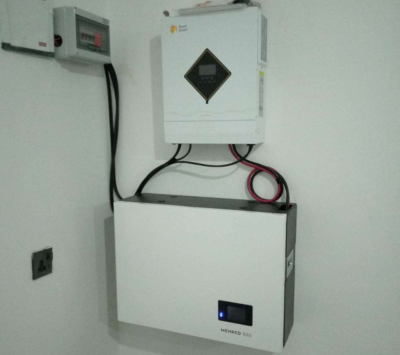
The LFP.6144.W battery ensures long-lasting performance with high safety standards, supporting thousands of charge-discharge cycles without compromising efficiency. During the day, the system captures surplus solar energy and stores it in the battery for use during nighttime or power outages, significantly reducing dependence on grid electricity.
With MENRED’s cutting-edge technology, the system not only provides clean, renewable energy but also enables the homeowner to manage their energy usage intelligently, lowering utility bills while contributing to a greener planet. The combination of advanced inverter technology and the high-capacity LFP battery offers a robust solution for sustainable living.
This installation showcases the transformative potential of MENRED ESS systems in creating energy independence and environmental harmony for modern households.
FAQs About Lithium-Ion Batteries for Solar Systems
1. Are lithium-ion batteries worth the cost for solar systems?
Yes, their long lifespan, high efficiency, and low maintenance costs make them a cost-effective choice for solar energy storage in the long term.
2. How do lithium-ion batteries compare to lead-acid for solar?
Lithium-ion batteries have a longer lifespan, higher efficiency, and greater energy density, making them superior for solar applications. However, they have a higher upfront cost.
3. Can lithium-ion batteries be used in off-grid solar systems?
Absolutely. Their compact size, durability, and efficiency make them ideal for off-grid setups, providing reliable power in remote areas.
4. What is the average lifespan of a lithium-ion solar battery?
Lithium-ion batteries typically last 10-15 years, depending on usage and maintenance.
5. Are lithium-ion batteries safe for residential use?
Yes, lithium-ion batteries, especially LiFePO4, are among the safest options for residential energy storage due to their thermal stability.
6. How do I maintain lithium-ion batteries in solar systems?
Regularly monitor charge levels, avoid deep discharges, and keep the batteries in a cool, dry environment for optimal performance.
Conclusion
Lithium-ion batteries are redefining how we store and use solar energy. With their unmatched energy density, long lifespan, high efficiency, sustainability, and flexibility, they are empowering the world to embrace renewable energy on a broader scale. Whether for residential, commercial, or utility applications, lithium-ion batteries are the key to unlocking the full potential of solar energy systems in 2025 and beyond.

